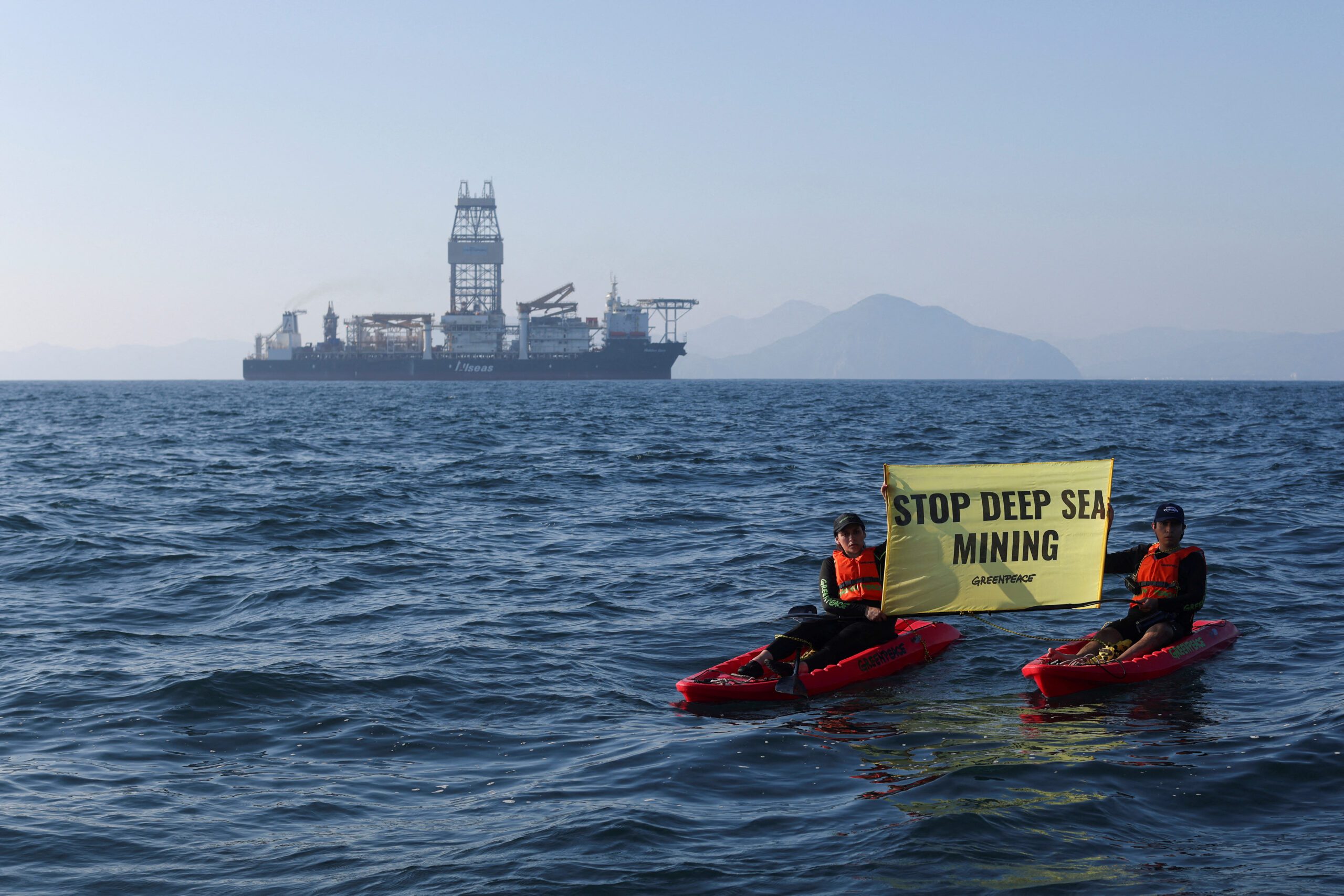- Reaction score
- 11,874
- Points
- 1,160
Meanwhile - for a guy that seems to not need anything that we have to sell he seems mightily focused on finding alternate sources of the stuff we can supply cheaply.

 gcaptain.com
gcaptain.com
And he wants Greenland for its strategic location (home of missile bases) and its minerals. Strangely he seems to covet us and we have also have the minerals he needs.
The US is broke other wise he would buy us. He can't afford us so he wants to take us.
FOAD.
....
Meanwhile, in the UK,

 www.telegraph.co.uk
www.telegraph.co.uk
The UK wants to build Power Corridors by 2030. Their corridors are a damsight shorter than any of the ones that Carney wants to build.
He is talking about Corridors like the NeeStananan one to Nelson/Churchill (about 4400 kilometers) as well as connections to Grays Bay and Inuvik. Grays Bay is located adjacent to the Coppermine River on the Coronation Gulf.
We may end up exhausting the Coppermine deposits just to manufacture the power lines to get power to the mine.
...
There seems to be a lot of people scrambling to find the stuff that we have in abundance and readily accessible - old fashioned stuff like iron for electric power pylons - that Carney claims nobody needs any more.

Trump Signs Executive Order Boosting Deep-Sea Mining Industry
President Donald Trump on Thursday signed an executive order aimed at boosting the deep-sea mining industry, marking his latest attempt to boost U.S. access to nickel, copper and other critical minerals used widely across the economy.
 gcaptain.com
gcaptain.com
April 24 (Reuters) – President Donald Trump on Thursday signed an executive order aimed at boosting the deep-sea mining industry, marking his latest attempt to boost U.S. access to nickel, copper and other critical minerals used widely across the economy.
And he wants Greenland for its strategic location (home of missile bases) and its minerals. Strangely he seems to covet us and we have also have the minerals he needs.
The US is broke other wise he would buy us. He can't afford us so he wants to take us.
FOAD.
....
Meanwhile, in the UK,

Electric ‘superhighway’ delayed in blow to Miliband’s net zero plans
Global shortage of high-voltage cables and converters risks Eastern Green Link 1’s delivery date
The UK wants to build Power Corridors by 2030. Their corridors are a damsight shorter than any of the ones that Carney wants to build.
He is talking about Corridors like the NeeStananan one to Nelson/Churchill (about 4400 kilometers) as well as connections to Grays Bay and Inuvik. Grays Bay is located adjacent to the Coppermine River on the Coronation Gulf.
We may end up exhausting the Coppermine deposits just to manufacture the power lines to get power to the mine.
A £2bn electricity “superhighway” linking England and Scotland is facing delays in a blow to Ed Miliband’s clean power plans.
Eastern Green Link 1 risks missing its target completion date because of global equipment shortages. The project involves a 120-mile cable being built between Scotland and north-east England that is capable of transmitting enough power for 2m homes.
Kathryn Porter, an independent energy analyst, said: “To achieve the Clean Power 2030 target we must build twice as much grid infrastructure in the next five years as we delivered in the past decade.
there is a risk the project will be severely late.
SP Energy and National Grid blamed global shortages of key pieces of equipment, including high-voltage cables and converters, which countries around the world are racing to buy as part of the switch to green energy.
That has led to years-long wait times, with manufacturers racing to expand their capacity but struggling to keep up with demand.
The problem highlights the risk posed to Mr Miliband’s clean power plans by a lack of available parts.
“But supply chain constraints make this an unachievable goal, particularly when we note that the lead time for some transformers is now four years.”
a £350m investment by Sumitomo Electric Industries in a new high-voltage cable manufacturing facility at the Port of Nigg, Highland, Scotland.
...
There seems to be a lot of people scrambling to find the stuff that we have in abundance and readily accessible - old fashioned stuff like iron for electric power pylons - that Carney claims nobody needs any more.












